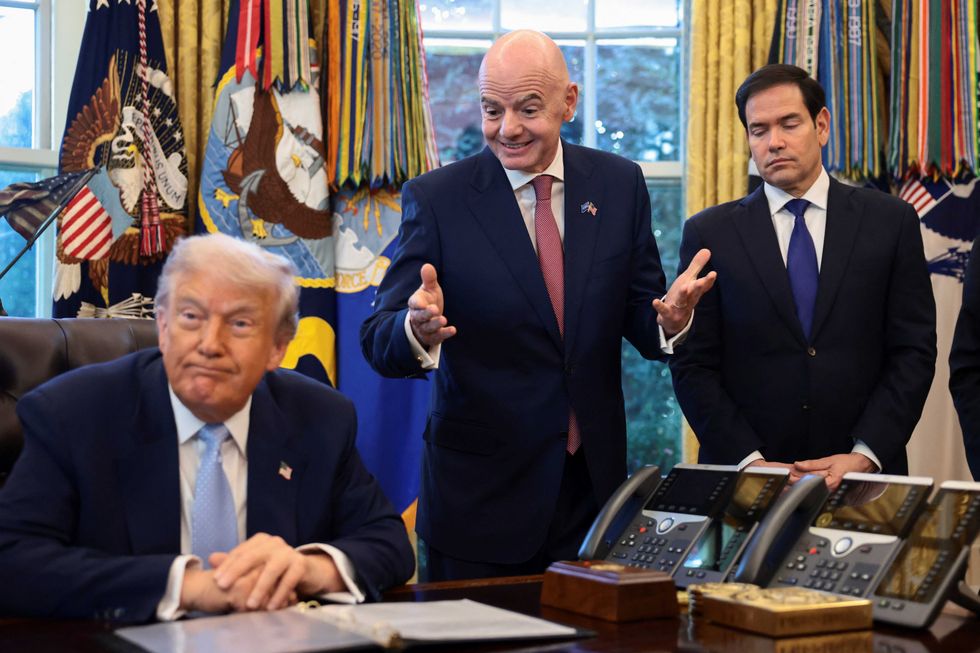UPDATE: In an explosive opinion piece, European analyst Marina Hyde has condemned Donald Trump and Gianni Infantino for potentially undermining the 2026 FIFA World Cup, a tournament poised to captivate billions worldwide. Just announced, Trump’s threats to relocate matches based on host city compliance have sent shockwaves through the global sports community.
Hyde’s scathing critique, published in The Guardian, portrays Trump as a disruptive force in the realm of sports. She highlights his recent declaration that games could be shifted from cities if he perceives them as unsafe or politically non-compliant—specifically targeting cities run by “Democrat/’communist'” leaders like New York City’s mayor, Zohran Mamdani. This alarming rhetoric raises serious concerns for fans and organizers alike.
The World Cup, scheduled to take place in various cities across the United States, Canada, and Mexico, is now under threat from political maneuvering. Hyde emphasizes the unprecedented nature of Trump’s remarks, noting that no president has ever threatened to move matches in the 95-year history of the tournament. “Football fans considering buying expensive tickets should think twice,” she warns. “Are they really traveling to a country so volatile that its own president questions its safety?”
Among the cities set to host matches are Atlanta, Boston, Dallas, Houston, Kansas City, Los Angeles, Miami, Philadelphia, San Francisco, and Seattle. The possibility of shifting venues based on political agendas could ruin the experience for countless fans.
“It’s amazing that the FIFA president will gladly allow his tournaments to be held in any old violent autocracy, but might need to draw the line at Boston for the cameras,” Hyde stated.
Hyde also reflects on FIFA’s evolving relationship with political entities, arguing that Infantino appears to prioritize personal political interests over the integrity of the sport. In recent months, Infantino has been seen attending Trump’s political events, including a controversial peace summit and the Gaza peace talks in Egypt. These actions have sparked accusations of prioritizing private interests over FIFA’s core mission.
As the tournament approaches, the implications of Trump’s statements extend far beyond sports. Hyde’s piece serves as a wake-up call, highlighting how the politicization of the World Cup threatens its very essence. The potential for games to be relocated based on partisan politics could dissuade international fans from participating in what should be a unifying global event.
Looking ahead, the global football community is left questioning the future of the World Cup under such volatile conditions. Hyde speculates that Trump may even receive a controversial FIFA peace prize during the tournament, further intertwining politics and sport. “The last time Gianni invented a prize, he held them twice inside nine months, so there’s every chance Trump could win again before the World Cup kicks off,” she asserts.
As this story develops, fans and officials alike are urged to stay alert to the ongoing implications of these political threats. The world is watching—will the 2026 World Cup become a battleground for political agendas, or will it remain a celebration of the world’s beloved sport?
